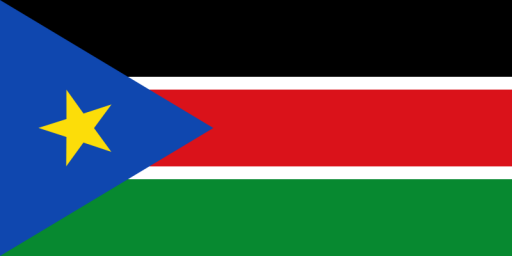U.S. Alone in Sudan
Rich Lowry, guesting at the Manchester (NH) Union Leader, argues that the “World has ignored U.S. effort to save Sudan from genocide .”
THAT OLD well-meaning cliche “never again” might be due for retirement. It is what we tell ourselves after every massive slaughter, whether it’s the Holocaust or Cambodia or Bosnia or Rwanda. Now, with a new genocide building in Sudan hard on the heels of the 10th anniversary of Rwanda — which brought pious expressions of regret that more wasn’t done to stop the killing at the time — we are about to prove ourselves perfectly ready to accept “again.”
Militias backed by the Sudanese government have forced roughly a million people from their homes in the western part of the country. In the North-South conflict that wracked Sudan for 20 years, the Muslim government’s favored tool was genocide, directed against the Christian and animist South. The government is using genocide again, giving air cover and other support to Arab militias that are cleansing black Sufi Muslims from the western province of Darfur. The North-South war killed 2 million. At least 10,000 have died already in Darfur, and absent immediate relief, hundreds of thousands could die.
“The U.S. has done more than anyone else in Darfur, and the Bush administration has done more than any other administration about Sudan,” says Nina Shea of the human-rights group Freedom House. The United States has pledged nearly $200 million in aid to the region. The European Union so far is kicking in a little more than $10 million — from all 25 countries in the EU combined. It is the United States that is pushing hard for a tough U.N. Security Council resolution that will call on the Sudanese government to end its support for violence and allow aid to flow into Darfur. This is consistent with the administration’s history of involvement in Sudan.
***
There as yet is no “CNN effect” in Darfur, the sense of urgency that comes from international media attention. The press has mostly been AWOL, with the exception of New York Times columnist Nicholas Kristof, whose searing reports have made him a one-man call-to-action. The Muslim world has reserved its outrage for the prison abuses at Abu Ghraib, even though a spoonful of the same condemnation applied to Sudan could help save hundreds of thousands of Muslim lives. As for the United Nations, it recently welcomed Sudan onto the U.N. Human Rights Commission, where, with China and Cuba, it will have lots of nasty company.
Unfortunately, Sudan doesn’t make natural fodder for Bush-bashers, or we might hear more about the issue. For the President’s critics the word “diplomacy” means one thing — strong-arm Israel. And “multilateralism” tends to mean only appeasing France. So the administration’s diplomatic achievement in Sudan might as well not exist, and its effort to muster other international actors, from the United Nations to Europe, behind a multilateral diplomatic and humanitarian aid initiative in Darfur is ignored. In this case, cries of “blood for oil” would have to be directed at China, which is obstructing diplomatic pressure on Sudan because of its oil business there — so, predictably, there are simply no cries of “blood for oil.”
The man has a point. I was well aware of the problems in Sudan but only tangentially so of US efforts there. Given the massive resources we currently have commited to the fight against jihadists, it’s remarkable that we’re spending so much in Sudan. What’s more remarkable is how little others are contributing.
I suppose this is just another example of Bush’s cowboy unilateralism.




Oh no! More US unilateralism. I suppose we should pull out immediately and turn this matter over to the UN so that the former colonial powers in Europe aren’t offended!
The top priority from the Bush administration is to give us security and free life our the world. To do that I think Bush is doing the best job by either isolating those nations supporting our enemy or making sure they have changed. I am saying this because if you look at the Sudan before 9/11, it was among nations supporting the terrorist network. Now Sudan have agreed to work with the rest of the world in building democratic society, there is nothing wrong with our government to persue its goal of creating a free Sudan which will post no threat to free world. I think we should stand with our government in its effort to protect our nation.
The top priority from the Bush administration is to give us security and free life our the world. To do that I think Bush is doing the best job by either isolating those nations supporting our enemy or making sure they have changed. I am saying this because if you look at the Sudan before 9/11, it was among nations supporting the terrorist network. Now Sudan have agreed to work with the rest of the world in building democratic society, there is nothing wrong with our government to persue its goal of creating a free Sudan which will post no threat to free world. I think we should stand with our government in its effort to protect our nation.
“The European Union so far is kicking in a little more than $10 million — from all 25 countries in the EU combined”
Hmm, the UK alone , which is just one of the 25 countries in the EU, has spend around $40 million this year in darfur, with an extra $25 million pledged.
I do hope that Nina Shea isn’t fudging the figures by ignoring what individual EU countries are giving and only counting what the EU as a body is giving.
A quick search indicates that her $10 million from the EU Development fund and ECHO is quite simply wrong. So far this year the EU has spent around $40 million in darfur.